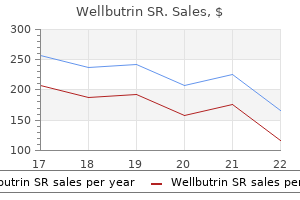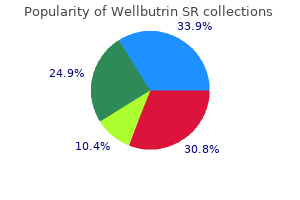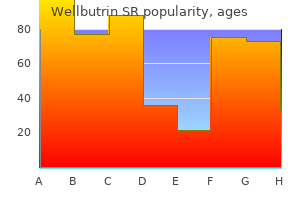"Discount wellbutrin sr 150 mg otc, anxiety from alcohol".
F. Olivier, M.A., M.D., M.P.H.
Clinical Director, Virginia Tech Carilion School of Medicine and Research Institute
Most identified victims are Dutch girls enticed by young male traffickers, known as "lover boys," who coerce vulnerable girls into sexual exploitation. Labor traffickers exploit men and women from Eastern Europe, Africa, and South and East Asia in industries such as inland shipping, leisure river cruises, agriculture, horticulture, hospitality, domestic servitude, and forced criminal activity. Refugees and asylum-seekers, including unaccompanied children, are vulnerable to labor trafficking. Over the last five years, more than 1,600 foreign children have left refugee centers to unknown destinations and remain highly vulnerable to exploitation. Refugees and asylum-seekers, including children in government-run asylum centers, are vulnerable to sex trafficking. In 2019, the government organized regional trafficking "expert" meetings, which bolstered information sharing between localities and with the national government. The government invited victims to provide input to the national action plan and frequently participated in regional "expert" meetings throughout the reporting period. The rapporteur published two reports during the reporting period that analyzed victim statistics from 2014-2018 and trafficking crimes from 2013-2017. The government continued multiple awareness campaigns with videos, websites, handouts, and school prevention curricula. The labor inspectorate continued to focus on sectors with an elevated risk of exploitation. In July 2019, the labor inspectorate launched "Information Point Human Trafficking," an internal hub to share and analyze possible trafficking cases, and announced an increased focus on labor trafficking in 2020. Local authorities believe labor traffickers also exploit men and women in domestic servitude and in the agricultural and construction sectors. Women in commercial sex and unaccompanied children are highly vulnerable to trafficking. Some migrants in restaurants and local businesses may be vulnerable to debt bondage. Bonaire prosecuted its first trafficking case in 2012; the case remained ongoing at the end of the reporting period. Victims of violence, including trafficking, were eligible for compensation from the Violent Offenses Compensation Fund. These efforts included investigating eight potential labor trafficking cases, forming an anti-trafficking operations group to increase law enforcement coordination, and conducting a training-needs assessment. Although the government meets the minimum standards, it did not initiate any prosecutions and convicted only two traffickers, which was a decrease from eight offenders convicted for trafficking-related crimes in the previous reporting period. The government did not identify or assist any victims of sex trafficking and identified fewer victims of forced labor than in the previous reporting period. During the reporting period, the government initiated investigations for eight potential cases of trafficking, did not initiate any new prosecutions, and convicted two traffickers; this was compared with two investigations, five trafficking-related prosecutions, and eight trafficking-related convictions in the previous reporting period. The government primarily focused its efforts on investigating potential cases of forced labor and approached sex trafficking via labor law enforcement measures, rather than pursuing sex trafficking cases as criminal violations. In a case initially investigated in 2018, a court convicted an offender under the trafficking statute in March 2020, for exploiting 13 Samoan victims in forced labor; as of the end of the reporting period, sentencing was scheduled for July 2020. In November 2019, after serving a third of their nine-and-a-half-year sentence, a parole board authorized the release of a trafficker convicted in 2016 for exploiting 15 victims in forced labor. The government also reported that in 2019 the New Zealand Customs Child Exploitation Operations Team arrested and prosecuted 16 offenders for border offenses relating to the sexual exploitation of children; however, it was not clear how many of these involved trafficking. As in previous years, authorities continued to report a lack of sufficient resources, and a lack of understanding of trafficking among some front-line officers, as well as high evidentiary and procedural standards, which may have resulted in the prosecution of some potential traffickers under different statutes, including non-criminal labor violations. The labor inspectorate investigated forced labor complaints but worked mainly within the civil legal system, contributing to the lack of criminal prosecution of forced labor crimes. Nonetheless, officials reported a lack of trafficking awareness among front line officers. The Crimes Act of 1961, as amended, criminalized sex trafficking and labor trafficking.

Bissau-Guinean men from the mainland fuel local demand for commercial sex on the islands. During previous reporting periods, there were reports of official complicity in human trafficking among island officials and in the judiciary. The government continued to demonstrate serious and sustained efforts during the reporting period; therefore Guyana remained on Tier 1. The government demonstrated serious and sustained efforts by completing a draft amendment of the Combating Trafficking of Persons Act, sentencing a convicted trafficker to a total of 15 years imprisonment, drafting a national action plan to eliminate child labor, completing standard operating procedures for investigating and prosecuting trafficking cases, and opening its first trafficking shelter outside of the capital area. Although the government meets the minimum standards, it investigated and prosecuted fewer suspected traffickers, identified fewer victims of trafficking, and did not provide adequate screening or shelter for child and male victims. There are insufficient labor inspectors and their training in human trafficking is inadequate. In 2019, the government reported 27 new investigations (25 for sex trafficking and two for labor trafficking), a decrease from 30 new investigations in 2019 and 4 in 2018. Police made 55 arrests in cases of sex trafficking and labor trafficking and continued investigations in 19 trafficking cases initiated in 2018. The government reported three new prosecutions of suspected traffickers in 2019 (one for sex trafficking and two for labor trafficking), a decrease from 11 prosecutions in 2018 and 17 in 2017. Authorities convicted one trafficker for sex trafficking of a minor and an adult female, compared with one conviction in 2019. The government did not report any new investigations, prosecutions, or convictions of government employees complicit in trafficking offenses, although the government screened Venezuelan women and children who experienced human rights abuses, including sexual exploitation by government officials. The government reported that the appeal of a 2017 case in which the government required the trafficker to pay restitution without imprisonment, a penalty inconsistent with the law, was still pending at the end of the reporting period. Observers noted there were frequent, widespread reports of physical and sexual abuse of children and allegations that some police officers could be bribed to make such cases "go away". The government did not report on the appeal of a former police officer convicted of sex trafficking and released on bail in 2016, still pending at the end of the reporting period. The government added immigration officials at major transit points to screen all arriving and departing migrants. Despite training for some judicial, prosecutorial, and law enforcement officials, trafficking and other major criminal prosecution cases took an average of two years in process and pretrial detention averaged three years. The government trained 221 law enforcement officers on trafficking victim identification and referral procedures and 48 judicial officers on standard operating procedures for prosecuting human trafficking cases with the assistance of international organizations during the reporting period. Victim assistance remained a serious concern, especially in areas outside the capital and for Venezuelan child and male victims. In 2019, the government identified 102 victims (63 sex trafficking and 39 labor trafficking), a decrease from 156 identified victims in 2018 and 131 in 2017. The victims came from Guyana as well as the Dominican Republic, Haiti, and Venezuela. The government referred 99 out of 102 victims to shelter and 98 to protective services, compared with 93 out of 131 victims in 2018. Due in part to the noticeable increase of victims from Venezuela, the government began work on standard operating procedures to identify and refer trafficking victims for protection with assistance from an international organization but did not adopt them by the end of the reporting period. There were inadequate trafficking shelters for male or child trafficking victims; few provided trauma-trained staff or long-term facilities. The government reported victims could leave shelters at will, although occasionally measures were necessary to prevent victims from giving out shelter locations. The government reported granting foreign victims temporary residence status and work permits if requested. The government reported facilitating the repatriation of one Guyanese national trafficked abroad, to whom it provided counseling and reintegration assistance. Labor officers frequently conducted impromptu visits to work sites and business premises in the mining and logging districts and capital city to investigate suspect labor practices and possible violations. Authorities reported six child labor violations; citations were issued for two child labor violations in the extractive and service industries, and criminal charges were filed in the two cases of child sex trafficking.

Scripture is primary, revealing the Word of God "so far as it is necessary for our salvation. Thus, tradition provides both a source and a measure of authentic Christian witness, though its authority derives from its faithfulness to the biblical message. The Christian witness, even when grounded in Scripture and mediated by tradition, is ineffectual unless understood and appropriated by the individual. To become our witness, it must make sense in terms of our own reason and experience. For Wesley, a cogent account of the Christian faith required the use of reason, both to understand Scripture and to relate the biblical message to wider fields of knowledge. He looked for confirmations of the biblical witness in human experience, especially the experiences of regeneration and sanctification, but also in the "common sense" knowledge of everyday experience. In that task Scripture, as the constitutive witness to the wellsprings of our faith, occupies a place of primary authority among these theological sources. In practice, theological reflection may also find its point of departure in tradition, experience, or rational analysis. What matters most is that all four guidelines be brought to bear in faithful, serious, theological consideration. Insights arising from serious study of the Scriptures and tradition enrich contemporary experience. Imaginative and critical thought enables us to understand better the Bible and our common Christian history. Scripture United Methodists share with other Christians the conviction that Scripture is the primary source and criterion for Christian doctrine. Through Scripture the living Christ meets us in the experience of redeeming grace. We are convinced that Jesus Christ is the living Word of God in our midst whom we trust in life and death. The biblical authors, illumined by the Holy Spirit, bear witness that in Christ the world is reconciled to God. As we open our minds and hearts to the Word of God through the words of human beings inspired by the Holy Spirit, faith is born and nourished, our understanding is deepened, and the possibilities for transforming the world become apparent to us. The Bible is sacred canon for Christian people, formally acknowledged as such by historic ecumenical councils of the church. Our doctrinal standards identify as canonical thirty-nine books of the Old Testament and the twenty-seven books of the New Testament. Our standards affirm the Bible as the source of all that is "necessary" and "sufficient" unto salvation (Articles of Religion) and "is to be received through the Holy Spirit as the true rule and guide for faith and practice" (Confession of Faith). We properly read Scripture within the believing community, informed by the tradition of that community. We are aided by scholarly inquiry and personal insight, under the guidance of the Holy Spirit. As we work with each text, we take into account what we have been able to learn about the original context and intention of that text. In this understanding we draw upon the careful historical, literary, and textual studies of recent years, which have enriched our understanding of the Bible. Through this faithful reading of Scripture, we may come to know the truth of the biblical message in its bearing on our own lives and the life of the world. Thus, the Bible serves both as a source of our faith and as the basic criterion by which the truth and fidelity of any interpretation of faith is measured. While we acknowledge the primacy of Scripture in theological reflection, our attempts to grasp its meaning always involve tradition, experience, and reason. Like Scripture, these may become creative vehicles of the Holy Spirit as they function within the Church. The Wesleyan heritage, reflecting its origins in the catholic and reformed ethos of English Christianity, directs us to a selfconscious use of these three sources in interpreting Scripture and in formulating faith statements based on the biblical witness. The close relationship of tradition, experience, and reason appears in the Bible itself. Scripture witnesses to a variety of diverse traditions, some of which reflect tensions in interpretation within the early Judeo-Christian heritage. The developing communities of faith judged them, therefore, to be an authoritative witness to that revelation. In recognizing the interrelationship and inseparability of the four basic resources for theological understanding, we are following a model that is present in the biblical text itself.
Traffickers often force female victims among asylum-seekers from Nigeria, Eritrea, Angola, and Ethiopia into commercial sex and domestic servitude. Male victims among asylum-seekers come primarily from Eritrea and Afghanistan and are exploited in forced labor. The violent conflict continued to amplify the magnitude of human trafficking crimes occurring within Syria. The government did not report investigating, prosecuting, or convicting suspected traffickers, nor did it investigate, prosecute, or convict government officials complicit in human trafficking. The government did not hold any traffickers criminally accountable, including complicit government officials, nor did it identify or protect any trafficking victims. During the reporting period, there was a government policy or pattern of recruiting and using child soldiers. The government and pro-Syrian regime-affiliated militias continued to forcibly recruit and use child soldiers, resulting in children facing extreme violence and retaliation by opposition forces; the government also did not protect and prevent children from recruitment and use by armed opposition forces and designated terrorist organizations. The government continued to arrest, detain, and severely abuse trafficking victims, including child soldiers, and punished them for unlawful acts traffickers compelled them to commit. The government did not protect children from forcible recruitment and use as soldiers and in support roles by government forces and pro-government armed groups, armed opposition groups, and terrorist organizations. The government continued to severely punish victims for unlawful acts traffickers compelled them to commit, such as child soldiering and prostitution. The government routinely arrested, detained, raped, tortured, and executed children for alleged association with armed groups and made no effort to offer these children any protection services. The government neither encouraged trafficking victims to assist in investigations or prosecutions of their traffickers nor provided foreign victims with legal alternatives to their removal to countries in which they may face hardship or retribution. The government did not implement measures to prevent children from unlawful recruitment and use as combatants and in support roles by government, pro-regime militias, opposition armed groups, and terrorist organizations. The government did not raise awareness of human trafficking among the general public or officials. The government did not report efforts to reduce the demand for commercial sex acts, nor did it prevent child sex tourism by Syrian nationals abroad. As of December 2019, human rights groups and international organizations estimate between 220,000 and 550,000 people have been killed since the beginning of protests against the Bashar al-Assad regime in March 2011. This vast discrepancy is due in large part to the number of missing and disappeared Syrians, whose fates remained unknown. Syrians that remain displaced in the country and those living as refugees in neighboring countries are extremely vulnerable to traffickers. The recruitment and use of children in combat in Syria remains commonplace, and since the beginning of 2018 international observers reported a continuation in incidents of recruitment and use by armed groups. Militants also use children for forced labor and as informants, exposing them to retaliation and extreme punishment. The Syrian refugee population is highly vulnerable to sex trafficking and forced labor in neighboring countries, particularly Jordan, Lebanon, Iraq, and Turkey. International organizations report a high number of child and early marriages of Syrian girls among refugee populations, which increases their vulnerability to trafficking. Illicit prostitution rings in Turkey and Lebanon compel Syrian refugee women and girls into sex trafficking. In Turkey, some female Syrian refugees are reportedly exploited in sex or labor trafficking after accepting fraudulent job offers to work in hair salons, modeling, entertainment, or domestic work. In Turkey, Lebanon, and Jordan, Syrian refugee children continue to engage in street begging or peddling goods, some of which may be forced or coerced. Authorities continued to demonstrate serious and sustained efforts during the reporting period; therefore Taiwan remained on Tier 1. These efforts included improved interagency coordination to combat trafficking; new policy initiatives intended to streamline investigations; continued oversight of vulnerable labor recruitment channels; and increased inspections and investigatory referrals of potential forced labor cases on fishing vessels. Although Taiwan met the minimum standards, significant challenges remained unaddressed. Thousands of migrant domestic caregivers remained at higher risk of exploitation in the absence of specific legislation ensuring their labor rights.


